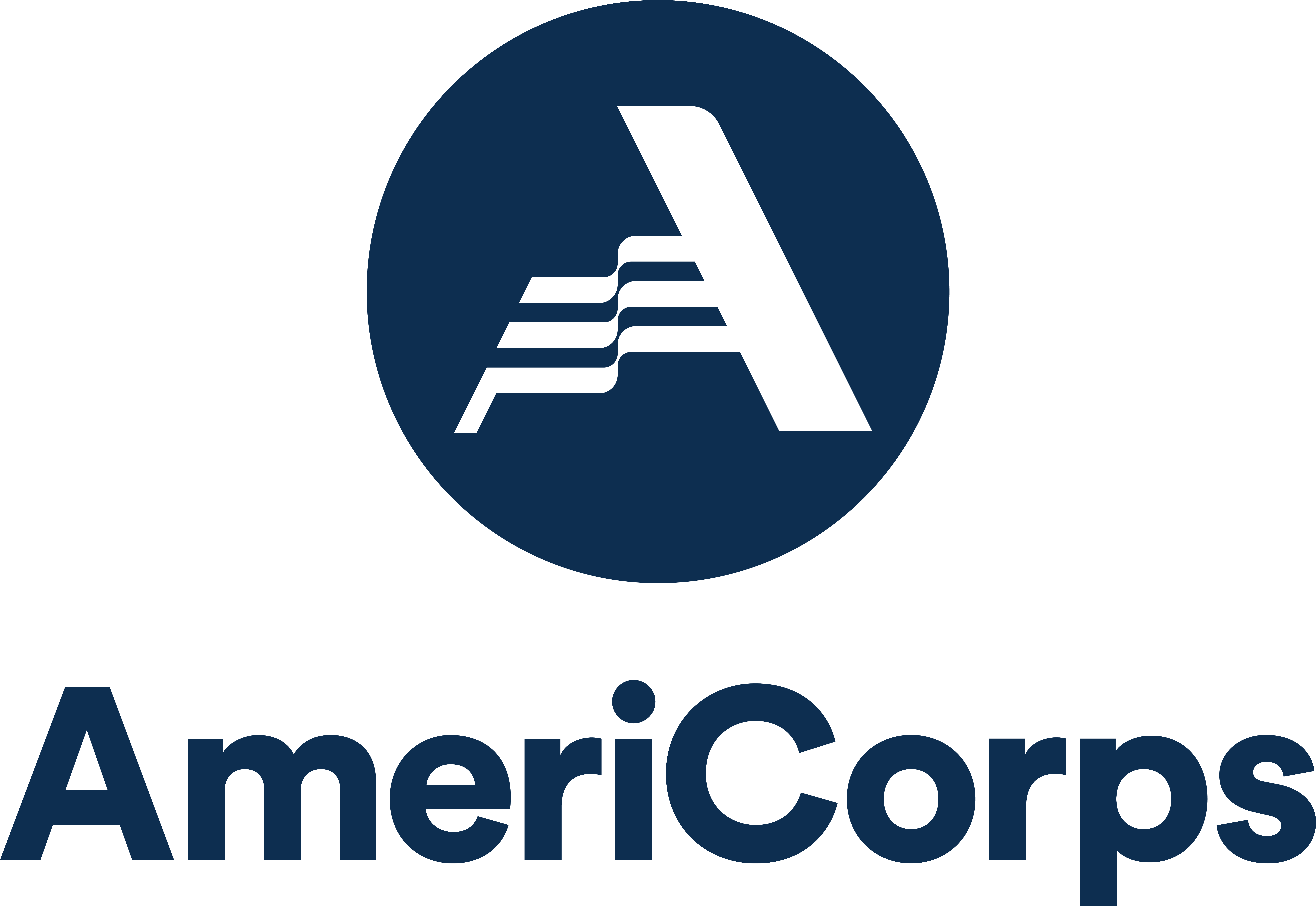CAP’s Summer Camp Program has always responded to the needs of Appalachian children.
If reading on mobile, click here.
Embracing Change
It just rained so much in such a short amount of time,” explained Pat Griffith, manager of Christian Appalachian Project’s (CAP) Camp Shawnee. “The ground became very saturated, and a continuous downpour of rain made the ground very unstable,” Griffith continued. “The least bit of pressure could cause the earth to move. There were mudslides throughout the county, even causing one major thoroughfare to close for months. In February, we discovered that we would not be able to hold our programming at Camp Shawnee this summer due to mudslides on the road to the site.”
The planning for Camp Shawnee had already begun in January, as it does every year. The staff needs that time in order to provide a great camp experience. Camp programming requires extensive preparation, from securing vendors to contacting families and recruiting volunteers. When staff learned that the mountainside road to camp was impassable, they knew it was a major setback for their plans. Without a way to circumvent the dangerous road, CAP’s leadership decided that for the safety of the children and staff, overnight camps at Shawnee wouldn’t be possible.
But Griffith and Camp Shawnee’s coordinator, Caitlin Speigle, were not deterred from their commitment to offer local children and teens a summer camp experience. “We never considered not providing programming. Our reaction, after the initial shock and disappointment, was ‘what now?’ We knew it was time for a plan B,” Speigle reflected.
This is not the first time the camps have had to adapt and respond to challenges. In fact, flexibility has been a hallmark of CAP’s summer camp programming. Most of the sites began as daycamps before transitioning to overnight camps, and there have been as many as five different camp locations during CAP’s 55 year history.
Throughout its history, CAP’s summer camps have never been tied to a single geographic location. The power and impact of the program come from the formation of relationships, not a particular place. CAP’s founder, Reverend Ralph Beiting, created the first iterations of summer camp at Cliffview Lodge in 1958 to respond to the need of children and families in the area. In 1967, Camp AJ began hosting daycamps for children and teens, expanding to overnight camp programming in 1970. In 1986, Camp Shawnee became the second permanent location. During its history, CAP also briefly operated Camp Rebecca Boone and Camp Boone’s Landing.
“I was actually hired as a teacher at Boone’s Landing,” Griffith recalled. “When CAP decided to shift its resources to AJ and Shawnee, Boone’s Landing closed, and my position was moved. I’ve been at Camp Shawnee ever since.”
CAP camps are constantly adapting and evolving, in both their focus and the means by which they seek to achieve their goals.
Emily Dumont, community educator for Camp AJ, explained, “I think some of the camp’s ability and necessity to be responsive comes with the nature of working with kids. It’s an environment in which you have to adapt. And I also think it comes directly from the type of people who are drawn to working in this type of programming. Anytime the staff are in a vehicle driving somewhere, or anytime we’re in the office together, we’re constantly discussing ideas about how we can do things better. Even at the end of a great summer, we immediately evaluate the ways we can continue to improve upon the experience.”
One of the most significant evolutions for Camps AJ and Shawnee in recent years has been an increased partnership with local schools. According to Liz Phelps, manager of Camp AJ, this was in response to feedback from the community. “When I first came here, we went into the local schools, told them who we are and just asked how we could help. We asked, ‘We want to help your kids, we want to support you – what can we do?’ And we’ve just never stopped asking that question.”
And the answer to that question, at least currently, has been to increase in-school support during off-season months through tutoring programs, classroom aide assistance, and after-school homework assistance. Additionally, CAP has expanded its Teen Leadership programming which focuses on equipping Appalachian teens with the tools to be successful academically and personally.
Throughout the year, the students in this program are given opportunities to learn valuable life skills like writing a resume, interviewing for a job, or preparing for college. Eventually, these students are able to apply to become Junior Counselors at the summer camps. It provides them a tangible goal and the means by which to achieve that goal, and they become role models for younger campers.
According to Mike O’Brien, coordinator at Camp AJ, the ease with which the Camp Shawnee staff have been able to adjust their plans and expectations for the summer is a testament to the ever-evolving and responsive nature of the program. “I think the biggest thing that keeps us on the right track is our commitment to our camp’s mission, which in turn is our commitment to our kids. Our mission at camps is ‘inspiring spirit and empowering Appalachian youth.’”
Griffith and her team have set out to offer a different kind of camp experience for the teens this summer, albeit not the one they originally envisioned. “We have been focused on the Teen Leadership program, and we didn’t want to lose the momentum that we’ve been building with our teens,” Griffith said. “So, the last two weeks in June, thanks to CAP’s amazingly supportive leadership, we will have one week of overnight camp for teen girls and a week of overnight camp for teen boys at the Foley Mission Center (a CAP facility used to host groups). We just want to keep that relationship and that bond with our teens going. All the rest of the weeks, we’ll be going to neighboring counties and schools to provide daycamps.”
Additionally, the staff of Camp Shawnee intend to integrate technology and social media into this summer’s amended programming. While they prefer to maintain a low-tech atmosphere at camp, they hope to utilize tools like podcasting and livestreaming video to connect with students who are unable to attend in person.
Griffith is taking this summer’s challenges in stride. “This is what we’ve been called to do this summer. There may be a child out there with whom we wouldn’t have made a connection or impact had camp gone as expected. Things happen for a reason. We are going to make this a positive atmosphere and make these camp weeks as special for the kids as possible.”
For all their transformations, the camps have maintained their focus of serving children and teens. “For me, CAP camps are just a safe place for kids to be themselves and be appreciated for who they are. And we get to affirm who they are,” Speigle explained. “We want the kids to know that we see them, and we see something good in each one of them. I see that as our lasting legacy, one that we’ve inherited – a legacy that we’re trying to keep going.”
O’Brien, agreed with that sentiment, adding, “We value campers for who they are, where they are. So many of our older campers and former campers say that at camp they are allowed to just be themselves. At home, at church, at school, they may have to “conform” or follow the expectations set out for them, but when they’re here, they are only asked to be who they are and who they want to be.”
“I think it’s appropriate that this year’s word from our Bible verse is ‘love,’ continued O’Brien. “Above the door in our staff lounge is a sign with a saying from a former counselor and full-time volunteer that says, ‘love those kids with everything you’ve got.’ So long as we’re focused on that goal, it doesn’t matter what the programming looks like, because it will always be for and about our kids.”
As for Griffith, who is both optimistic about this summer’s version of camp and excited for the future of Shawnee, she maintained that when they are able to return to their traditional summer programming next year, it will continue to be a transformative experience. Griffith’s constant refrain is, “2020 is going to be bigger and better than ever.”







